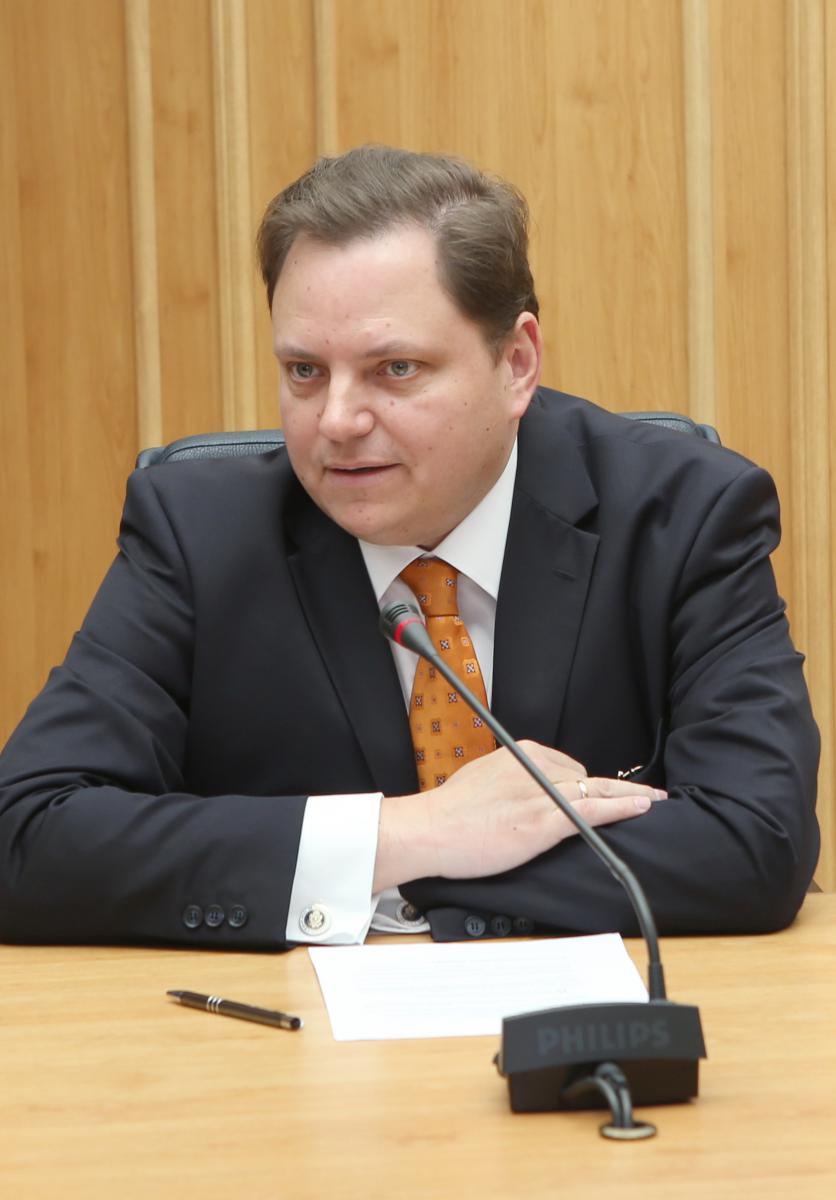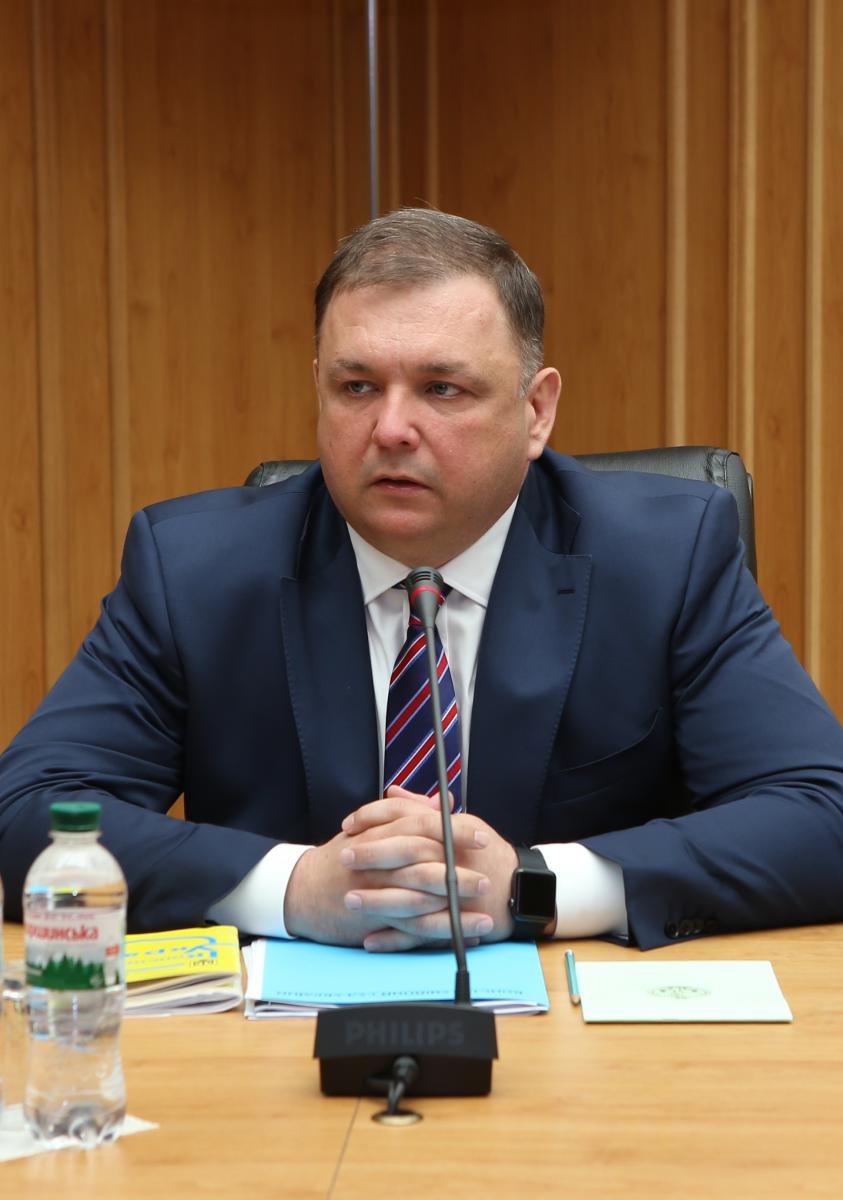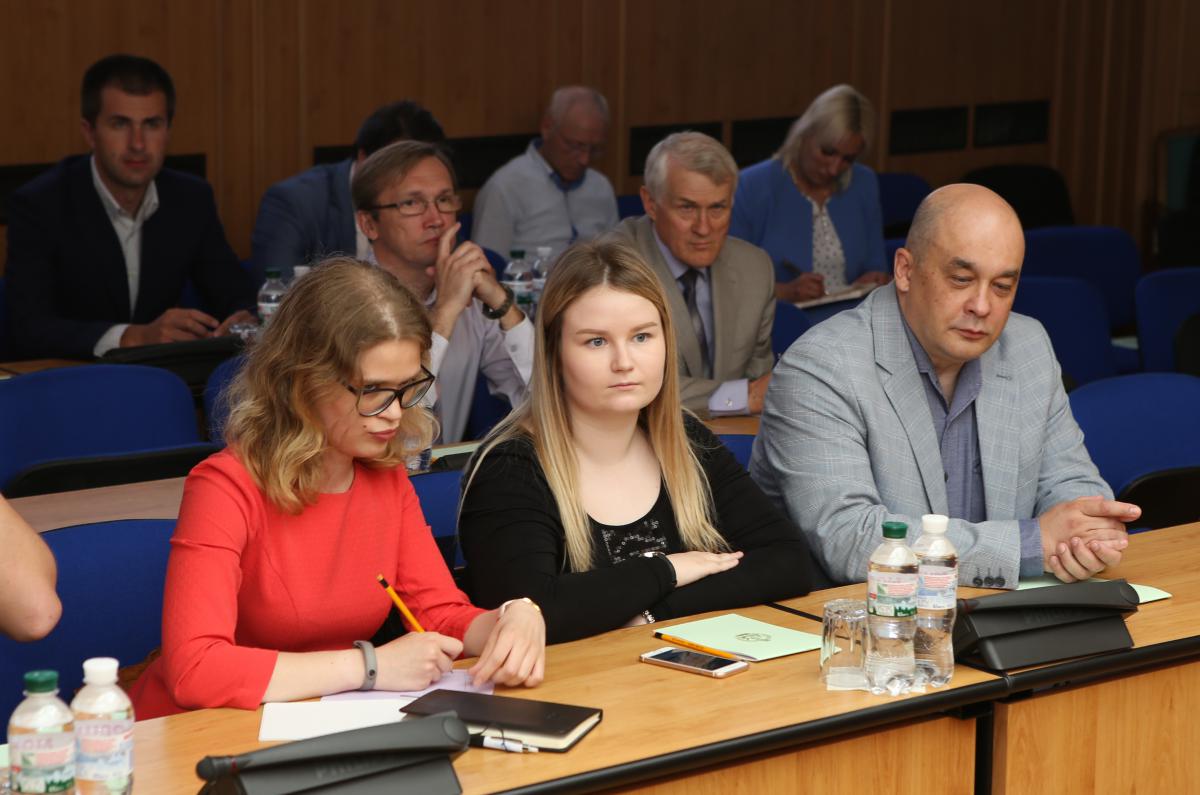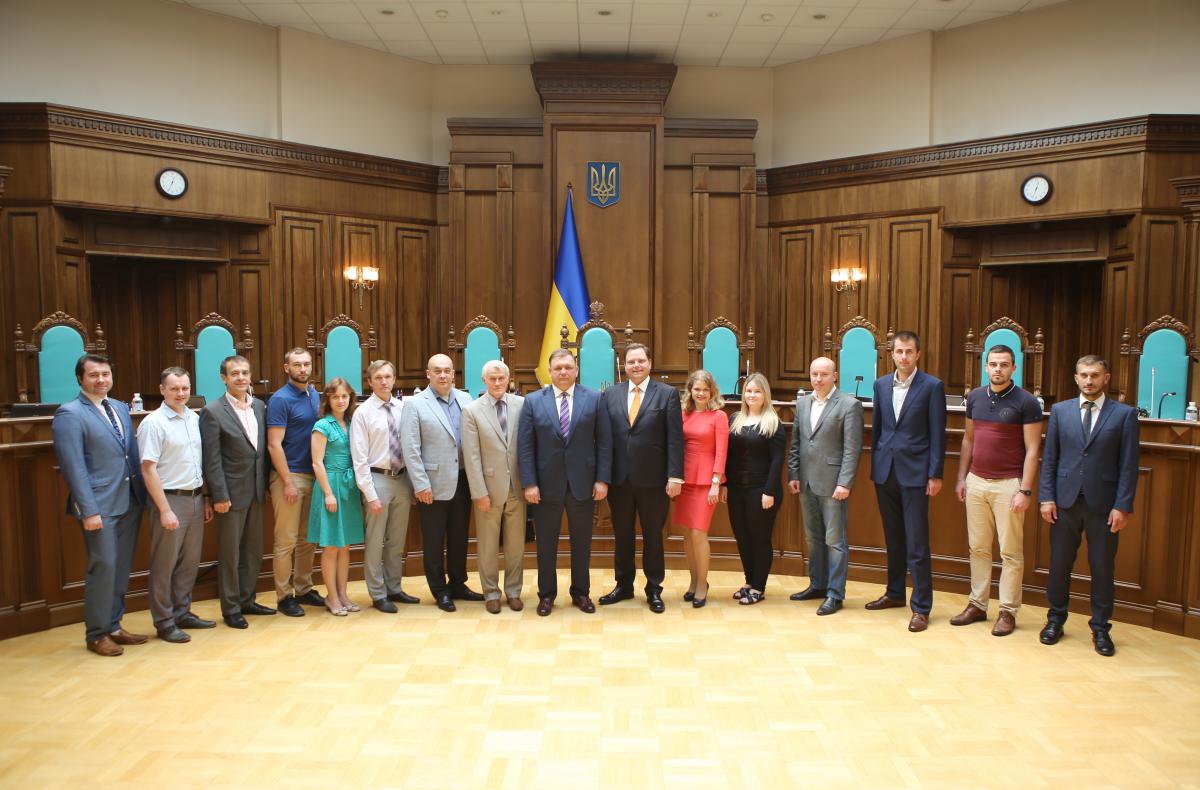The Constitutional Court of Ukraine continues to demonstrate openness and independence
On June 4, 2018 Chairman of the Constitutional Court of Ukraine Stanislav Shevchuk met with representatives of the American Chamber of Commerce in Ukraine. The representatives of the Chamber who came to the Court today were able to make sure of the fact that the activities of the Constitutional Court of Ukraine have become essentially different and are aimed at establishing the supremacy of the Constitution of Ukraine.
The meeting was devoted to the peculiarities of the application of the constitutional complaint mechanism in Ukraine as an effective way of protection against low-quality laws, i.e. those that violate constitutional human rights.
 President of the American Chamber of Commerce in Ukraine Andy Hunder emphasised the need for business dialogue with state authorities, in particular, the Constitutional Court of Ukraine, and noted that ensuring the rule of law is one of the priority business principles in Ukraine. The speaker stressed that the institute of constitutional complaint had opened the access of citizens to the Constitutional Court of Ukraine, and therefore, in his opinion, it is important to discuss the problematic issues of the application of this mechanism.
President of the American Chamber of Commerce in Ukraine Andy Hunder emphasised the need for business dialogue with state authorities, in particular, the Constitutional Court of Ukraine, and noted that ensuring the rule of law is one of the priority business principles in Ukraine. The speaker stressed that the institute of constitutional complaint had opened the access of citizens to the Constitutional Court of Ukraine, and therefore, in his opinion, it is important to discuss the problematic issues of the application of this mechanism.
Chairman of the Constitutional Court of Ukraine Stanislav Shevchuk emphasised the importance of ensuring favourable conditions for business development in Ukraine, since, in his view, strong business is possible only in the conditions of a competitive economy and an efficient, developed state.
Chairman of the Court stressed that the main purpose of the Constitution of Ukraine is to restrict state power. "Authoritarian power destroys, in particular, the business of the country," he added. Therefore, in his opinion, a constitutional complaint is a challenge that today faces Ukrainian society, including business.
 Stanislav Shevchuk noted that the Constitution covers the entire legal system of Ukraine, because it is not just a text, but also the values and spirit which are revealed through the effective work of the Constitutional Court of Ukraine. According to him, the constitutional courts are, inter alia, also the positive legislators, because in their decisions legal positions are formed implicitly (not directly provided by the text, but follow from its content).
Stanislav Shevchuk noted that the Constitution covers the entire legal system of Ukraine, because it is not just a text, but also the values and spirit which are revealed through the effective work of the Constitutional Court of Ukraine. According to him, the constitutional courts are, inter alia, also the positive legislators, because in their decisions legal positions are formed implicitly (not directly provided by the text, but follow from its content).
In his speech, the speaker dwelled upon the main priorities of the Constitutional Court of Ukraine and informed those present about the first results of the functioning of the constitutional complaint institute. The subject of the constitutional complaint are the laws that should maximally ensure the implementation of the constitutional human rights.
With the introduction of the constitutional complaint institute, a person has an opportunity to directly appeal to the Constitutional Court of Ukraine in order to protect his/her constitutional rights violated by law, noted Chairman of the Court. "Constitutional complaint is a person's complaint against the state", stressed Stanislav Shevchuk. According to him, the idea of constitutional complaint is to restrict the state and protect human rights. This mechanism, in his opinion, is very progressive.
Speaking about the first experience of reviewing constitutional complaints, Chairman of the Constitutional Court noted that about 600 complaints had already been received by the Constitutional Court of Ukraine, most of which were returned to the applicants upon the results of their consideration by the Secretariat in view of non-compliance with the formal requirements of the law. "Only nine complaints resulted in initiating the proceedings," he added.
The speaker stressed that the law clearly specifies the competence of the Constitutional Court of Ukraine in considering constitutional complaints and sets a number of requirements for their registration and filing. However, according to Stanislav Shevchuk, the most common mistakes in filing a constitutional complaint, in particular, are as follows: the applicants do not indicate exactly what constitutional right was violated and do not take into account the condition regarding the existence of a final court decision (appellate or cassation instance).
According to the Chairman of the Constitutional Court of Ukraine, decisions on constitutional complaints will have a general effect (erga omnes). In addition, according to Stanislav Shevchuk, it is important to restore the state which existed before violation of law (restitutio in integrum) and the possibility of obtaining moral and material compensation.
Chairman of the Court also dwelt upon specific decisions of the Constitutional Court of Ukraine, in particular, the decision on the unconstitutionality of the language law and the referendum law. He noted that for the first time in the history of the Court, the laws were declared unconstitutional in general due to a violation of the procedure for their consideration and approval. Stanislav Shevchuk also stressed the importance of the decision of the Constitutional Court of Ukraine on compliance with the Constitution of Ukraine (constitutionality) of the provisions of the third sentence Article 315.3 of the Criminal Procedure Code of Ukraine. "The court cannot continue the detention on its own initiative without the prosecutor's submission, because the principle of impartiality of the court is violated," he said.
Stanislav Shevchuk stressed that the Constitutional Court of Ukraine had formed the principle of friendly attitude to international law. For the first time this was done in the decision on judicial control over the hospitalisation of incapacitated persons to a psychiatric institution. In the opinion of the Chairman of the Court, the European Convention on Human Rights and the Constitution of Ukraine have the same legal nature. Yet, in his view, the case law of the European Court of Human Rights should be carefully weighed, otherwise it will lead to copying. We must remember that it is the Constitution of Ukraine, which has the highest legal force in the state.
 Regarding the abovementioned decision of the Constitutional Court of Ukraine on judicial control over the hospitalisation of incapacitated persons to a psychiatric institution, Stanislav Shevchuk noted that this decision does not only concern psychiatry. In his opinion, the decision is based on the concept that no one can be deprived of his or her liberty without a court decision. "Among the fundamental values of an effective constitutional democracy is freedom, the presence of which is one of the prerequisites for its development and socialisation," he added.
Regarding the abovementioned decision of the Constitutional Court of Ukraine on judicial control over the hospitalisation of incapacitated persons to a psychiatric institution, Stanislav Shevchuk noted that this decision does not only concern psychiatry. In his opinion, the decision is based on the concept that no one can be deprived of his or her liberty without a court decision. "Among the fundamental values of an effective constitutional democracy is freedom, the presence of which is one of the prerequisites for its development and socialisation," he added.
According to the Chairman of the Constitutional Court, the Constitutional Court of Ukraine develops mechanisms for involving experts in the preparation of analytical materials on constitutional proceedings under constitutional petitions, appeals and complaints (amicus curiae). "Preparing the amicus curiae for the Court is a positive and, undoubtedly, an important practice," he stated.
The key task facing the Constitutional Court of Ukraine is the restoration of public confidence in the Court, stressed the Chairman of the Constitutional Court. This is possible, in particular, by adopting substantiated decisions which will have a meaningful weight.
In conclusion, Stanislav Shevchuk expressed gratitude to the guests for the initiative to hold such meeting and stressed that the Constitutional Court of Ukraine is open to cooperation.


